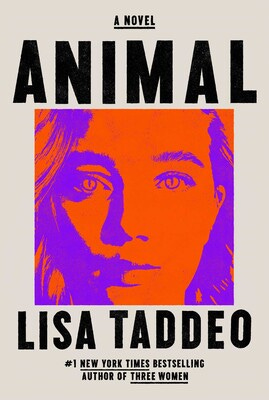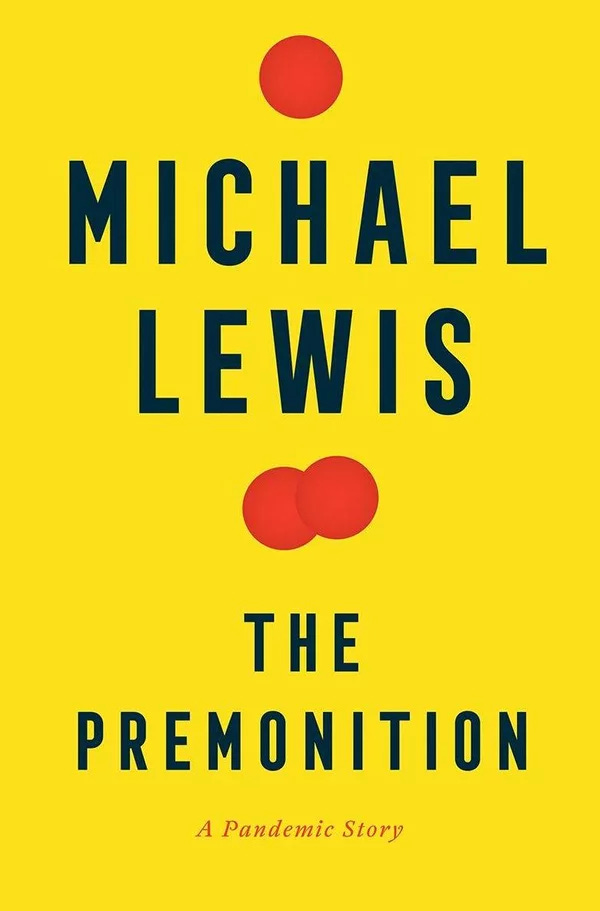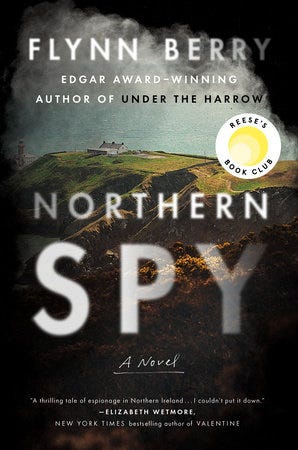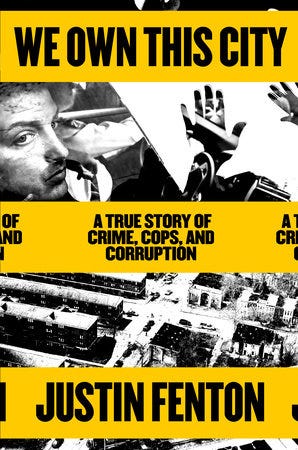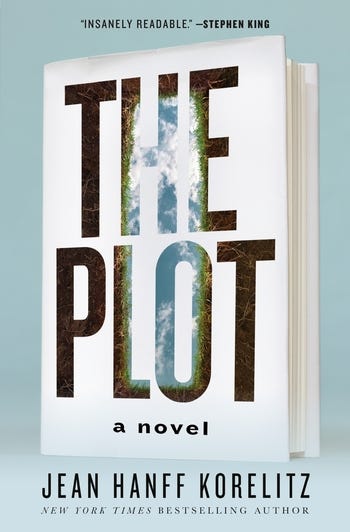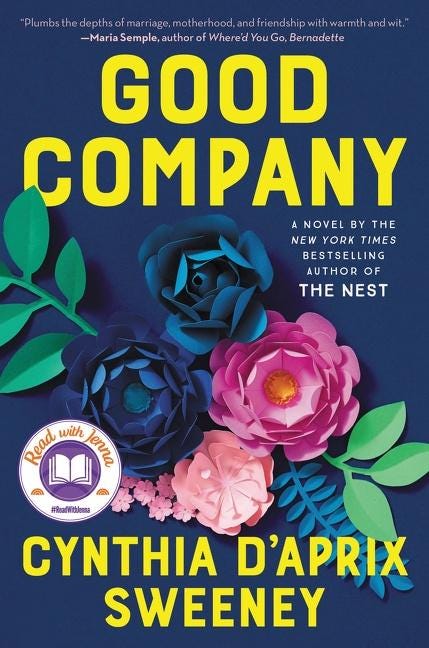May 2021 Reading Round-Up
The best and worst of my reading month
Welcome to the May 2021 Reading Round-Up. Each month, I write about the books I read and rank them from worst to best. If you need a refresher on my rating system, you can find that here.
This month I read ten books, eight fiction and two nonfiction. I enjoyed nearly every book I read, and as a result, it was hard to distinguish my favorite out of the top three. I’m hopeful there is something on this list for everyone and am looking forward to reading more as the summer unfolds.
10. See Jane Snap - Bethany Crandell
Fiction, 336 pages, release date: September 7, 2021
See Jane Snap is about the life of Jane, a stay-at-home mom in her late-thirties who finds out that her husband has been cheating on her for most of their 18-years-marriage with another man. The news effectively shatters the idea of the pristine life that she believed she was living as stellar mom, president of the PTA, and team mom for her daughter's soccer team. However, Jane can't just get a divorce. She has a sister who can't hold down a job, a twelve-year-old acting out, and a mother with Alzheimer's living in an assisted living facility. On top of all that, the financially struggling hospital where Jane's husband Dan works as the head of surgery is courting a large-dollar conservative donor who they think would withdraw his donation if he knew that Dan was gay. As the stresses of Jane's new less-than-perfect life build, Jane has a breakdown and is arrested in a grocery store parking lot after she assaults a woman with oranges and then has an accidental trip on ecstasy. In order to avoid accruing a record, Jane is enrolled in a therapy group for low-level female offenders, which starts her journey of healing, exposure to lives different than her own, self-discovery, and potentially love. With so much packed into this book, most of the character development is not fully explored. The result is a book focused more on moving the plot forward than on fleshing out the details, creating a superficial story that relies on stereotypes to identify characters.
Rating: 6.5/10
Thank you to Montlake for the advanced review copy.
9. Animal - Lisa Taddeo
Fiction, 336 pages, release date: June 8, 2021
After the man who was having an affair with Joan kills himself in a New York restaurant in front of her, Joan decides to leave New York and head to Los Angeles. From the first two chapters, it is not entirely clear why Joan is set on Los Angeles, the reader only knows that someone named Alice lives there and that Joan believes that Alice knows something important about her. As the book unfolds, it becomes clear that Joan is a woman with a traumatic history that stretches back to her early childhood - the suicide of her ex-lover in front of her barely scratches the surface. Taddeo slowly doles out the details of Joan's tragic past and as she does, readers begin to better understand why Joan is the way she is. The only problem, however, is that I found none of the characters particularly sympathetic, and as a result, was rooting for no one. Joan seems to represent a caricature of female depravity and suffering - hence the "animal" in the title. Nevertheless, Taddeo is a talented writer and includes rich details in every scene. If you enjoyed Three Women, Taddeo's non-fiction debut from 2019, you might also like this one. Many of the same themes and focus on the complicated sexual and emotional lives of women are on full display.
Rating: 7/10
Thank you to Avid Reader Press for the advance review copy.
8. Red Island House - Andrea Lee
Fiction, 288 pages
The majority of Red Island House takes place in a coastal village in Madagascar where Shay’s husband Senna has built a magnificent vacation home. Shay, the African American wife of an older Italian man and herself a professor of African American literature in Milan, comes to Madagascar every summer and winter to vacation in the Red Island House. Every chapter is a different moment or period in time and Lee very rarely returns back to plot lines already addressed. Woven throughout the chapters, however, are impactful vignettes about the island and Shay’s sense of place as an African American woman in a town overrun by white Europeans, who by nature of the money they have to spend and the allure of Madagascar as a perpetual exotic holiday, lay claim to the land as their own. Red Island House is a reflection on race, racism, and the lingering impacts of colonialism. I don’t think I had ever read a book set in Madagascar before this one, and Lee writes beautifully about the landscape as well as the people and traditions that inhabit the island.
Rating: 8/10
7. All Girls - Emily Layden
Fiction, 320 pages
The book opens on move-in day for Atwater, an elite all-girls boarding school. As freshmen and their parents drive into the rural Connecticut town where the boarding school is located, they are greeted by signs put up along the road informing the community that “A Rapist Works Here.” While the start of the book is dramatic and readers might expect the plot to reveal the story of the rape, the plot is not necessarily focused on these details, but is instead interested in the impact that the exposé has had on the campus nearly twenty years later. The narrator of each chapter of All Girls is different, rotating through a cast of nine different students at the school at all stages of their academic careers. As a result, readers are exposed to the different facets of life at this boarding school while also being fed the same uniform truth - that while the students are all being idealistically groomed to believe that the world is their oyster, there is no avoiding the intrinsic truths of what it means to be a woman and the vulnerabilities that womanhood, sex, and power entail.
Rating: 8.5/10
6. The Premonition - Michael Lewis
Non-fiction, government and public health, 320 pages
The Premonition is the quasi-sequel to Michael Lewis’ The Fifth Risk, which I read in late-December of 2019 as an abstract warning about the dangers of having people in government who are essentially disinterested in utilizing it as a functional bureaucracy. The Premonition highlights this point in the public health world by focusing on key experts in the field and how they are the anomaly in America’s decentralized public health system. Lewis’ focus on these central characters is an effective and strategic storytelling technique. By drawing readers into the lives of these characters, one is better able to understand the intricacies of the public health system that Lewis is writing about and the areas where this system dramatically need improvement.
The book is a rebuke of the Centers for Disease Control and its slow processes that often do not meet the urgency of the moment. The central thesis focuses on the fallacy and dangers of relying on the individual rather than on tested systems, given that individuals can be uninformed or focused on politics and public approval rather than making hard decisions involving risky outcomes. The general takeaway from this book is that much of the coronavirus pandemic - including the death toll - could have been avoided if institutional knowledge had been better utilized, better structures were in place, and competent voices on the mediation of disaster were amplified. This book is not a “pandemic book.” It is a book about the importance of institutions and expertise, and how our government suffers when these elements of governance are not prioritized.
Rating: 8.5/10
5. Northern Spy - Flynn Berry
Fiction, thriller/espionnage, 288 pages
Northern Spy is set in the present in and around Belfast. Tessa is a radio producer for the BBC and a new mother content with her life. One day while working she hears news of a robbery instigated by the IRA. When she looks up at the television she sees shockingly that one of the perpetrators is her sister, Marian. The discovery that her sister might be living a double life puts Tessa in a tailspin that requires her to figure out how long this secret has been kept from her, the extent of her sister’s political beliefs, and if these political convictions have ever led to the violence that has been the backdrop of her life. Along the way, Tessa is sucked into her sister’s activities, and Tessa must reconcile her desire to live a quiet life with the realities of the conflict driven country that she lives within. I am fascinated by the Troubles, and although this book is not the most beautifully written out of the books on this list, it did provide not only a fast paced thriller, but also a seemingly insightful look into the ongoing conflict in Northern Ireland that persists to this day despite the 1998 Good Friday Agreement for peace.
Rating: 8.5/10
4. We Own This City - Justin Fenton
Non-fiction, crime and policing, 270 pages
Justin Fenton is a crime and courts reporter for the Baltimore Sun and a Pulitzer Prize finalist for his reporting on the riots in Baltimore following Freddy Gray’s death in police custody in 2015. We Own This City, however, is only tangentially connected to Freddy Gray and the legacy that his death had on policing in Baltimore. Rather, the book is about endemic corruption within the Baltimore Police Department, particularly within the Gun Trace Task Force, an elite plain clothes unit led by Wayne Jenkins. For years, Jenkins and his team robbed citizens in a city they were tasked with protecting. Aware of the profit they could make and the limits of oversight within the police department, Jenkins and his team would steal drugs and money taken during arrests for personal gain. Sometimes, absent probable cause for a stop, members of the Gun Trace Task Force would orchestrate stops using planted evidence, resulting in countless wrongful convictions and lives ruined. In a city with high rates of violent crime, leadership was unwilling to look too closely at a unit that on paper had gotten results, even if those results came at the expense of the rule of law. While the book was about corruption within the Baltimore Police Department, We Own This City can also serve as a cautionary tale for the dangers of letting police departments operate in insular and unchecked ways.
Rating: 9/10
3. The Plot - Jean Hanff-Korelitz
Fiction, Thriller, 336 pages
The Plot is a thriller that follows a writer named Jake, who after the dwindling sales of his first and second novels is desperate to be known for something more successful. While teaching at a low-residency MFA program in Vermont, Jake meets Evan Parker, a student who swears he has the plot for the next best-selling phenomenon. A few years later and struggling even more than when he was teaching, Jake discovers that Evan has died and that his book with the ironclad plot has possibly died with him. Never once asking where Evan came up with his ideas, Jake decides to write the book himself, justifying his actions by convincing himself that some stories are allowed to be borrowed in order to be told. And Evan was right, the book becomes a bestseller and all of Jake's fantasies of becoming a famous, well-respected author come true. That is, until Jake starts to receive messages from an anonymous person saying that Jake plagiarized the story and threatening to reveal the truth to the world. Despite the fact that Jake is not a particularly likable character, I couldn't help but be invested in him and his story, if only because Jake is the vehicle through which the author reveals what is actually going on.
Although this is a thriller, the first three quarters of the book are not particularly fast-paced. However, this is not a bad thing. The author's pacing lures the reader into a false sense of security, slowly building up the drama until the final section of the book where all of the details are revealed. While I did guess some of the twists and red flags, (or at some points had sneaking suspicions), I was still focused on the plot and dreaded what could happen to Jake once all the pieces came together. I loved the way that the author ended the book (no spoilers) and the break from the arc of a traditional storyline. This is a well thought-out and interesting thriller that will keep readers guessing and pages turning.
Rating: 9/10
Thank you to Celadon Books of Macmillan Publishers for the advanced review copy.
2. Good Company - Cynthia D’Aprix Sweeney
Fiction, family saga, 320 pages
Good Company begins with a moment of family drama when Flora discovers in her filing cabinet the wedding ring that her husband Julian claimed to have lost years ago. While the fallout of this discovery and its obvious implications guide the course of the book, it also is not its central focus. Instead, Sweeney tells the story of how the characters got to their present predicament by telling the reader about their pasts. In chapters that alternate perspectives from Flora, Julian, their daughter Ruby, and their close friends Margot and David, Sweeney slowly reveals how their complicated lives, close friendships, and search for fulfillment have brought them to the moment that readers find them in when they open the book. The result is an achingly beautiful story about the reconciliation (or lack thereof) of desires and dreams in the face of changing demands from family and friends. I loved this book and found it even better than Sweeney’s first. Sweeney writes with an eye toward detail, making every character, moment, and paragraph feel important.
Rating: 9/10
Thank you to Ecco at HarperCollins for the advanced review copy.
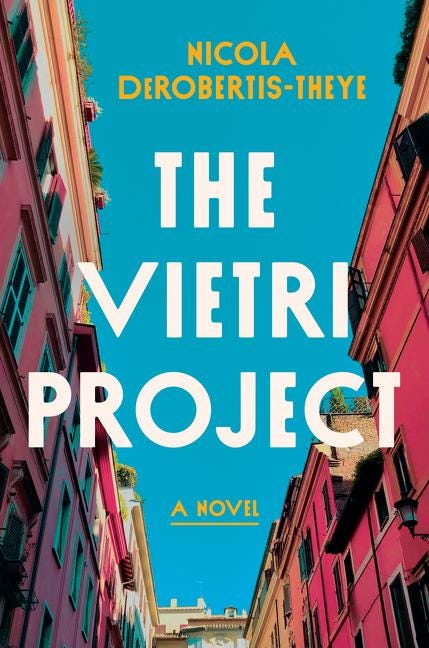
1. The Vietri Project - Nicola DeRobertis-Theye
Fiction, coming of age novel, 224 pages
The Vietri Project is a coming of age novel that follows Gabrielle as she attempts to find her place in the world. It is 2011, and unable to get a job post-financial crisis, Gabrielle leaves a position in a bookstore in Berkeley where she has spent the past two years filling large and eclectic orders for a mysterious man named Vietri based in Rome. Feeling stuck, Gabrielle decides to travel the world and ends up in Rome, the city of her mother’s birth and adolescence, in an attempt to overtly learn more about Vietri and simultaneously subconsciously learn about herself. Through Vietri, Gabrielle discovers the history of Italy in the 20th century, and as an extension, the legacy that she carries as a dual citizen, which she previously had felt isolated from.
While Gabrielle moves through Rome, readers learn that at twenty-five, her mother was diagnosed with schizophrenia, an affliction that left her institutionalized in California and upended Gabrielle’s childhood and connections to her family. As a result, Gabrielle’s search for meaning is not confined to the typical tropes of a coming of age novel. Rather, Gabrielle is acutely aware of the fact that the average age of a woman to be diagnosed with schizophrenia is her own age, and that at any moment her life and reality could be ripped away from her without any notice. The Vietri Project is Nicola DeRobertis-Theye’s first novel, and it is impressive for the sense of place it evokes. The writing is lyrical and Gabrielle’s observations moved me not just for the descriptions of Rome, but also due to the descriptions of complicated relationships within families, and a young person unsure of what comes next.
Rating: 9/10
If you like what I’ve written or want to see more reviews, recommendations, and round-ups about a wide range of novels, histories, and more, consider subscribing now by entering your email. It’s free and it’s about books. What’s not to like?
Want to see last month’s round up? You can find that here.


